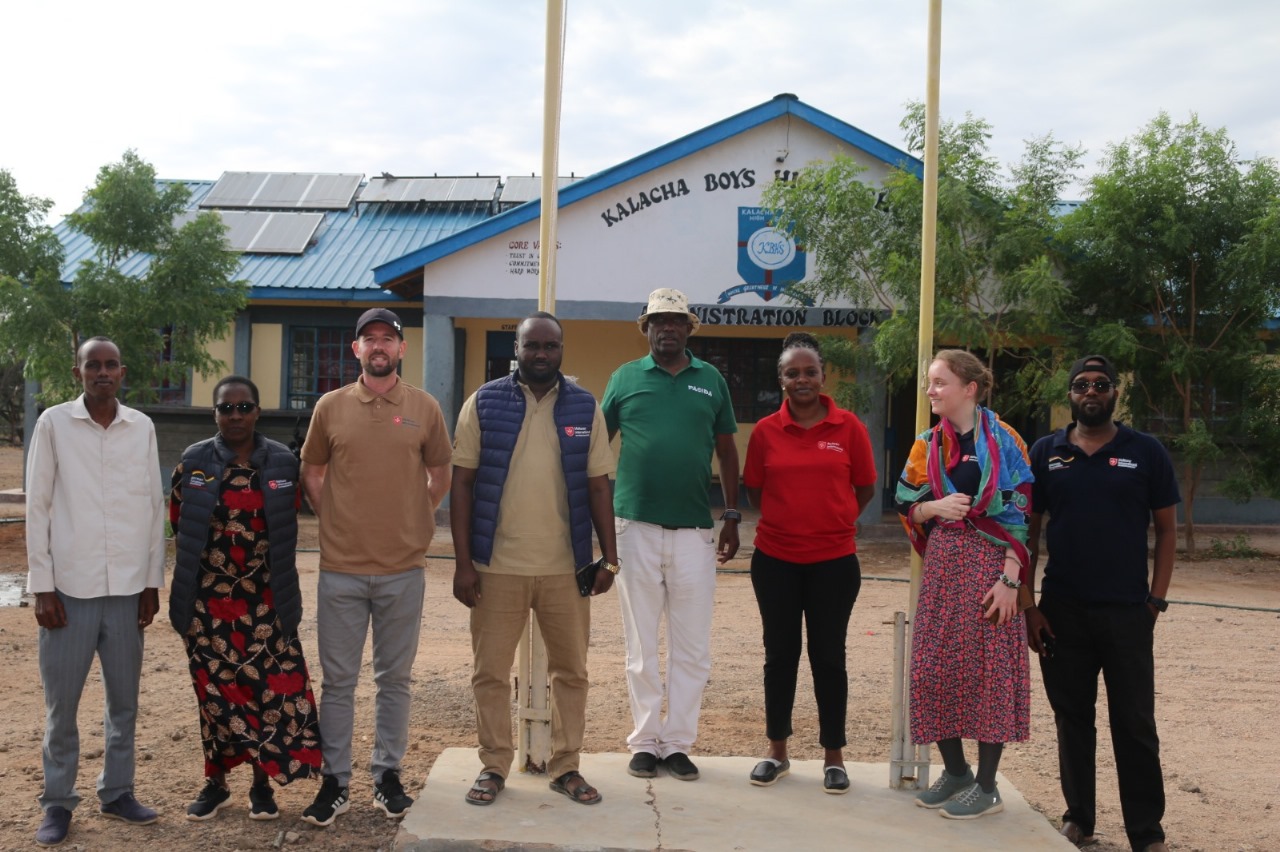
As part of his introductory visit to PACIDA and Malteser International (MI) projects, the newly appointed MI Country Director, Manuel Lackmaier, was joined by PACIDA’s Chief Executive Officer, Mr. Patrick Katelo, and the joint MI/PACIDA team for a field mission to Illeret.
The team oversaw the distribution of emergency food aid during the third and fourth cycles, reaching 200 of the most vulnerable households.
Each household received maize flour, cooking oil, salt, beans and maize.
Manuel Lackmaier appreciated the ongoing partnership between the community and PACIDA which started in 2011.
Katelo called on the community to continue maintaining peace between the Dasaanach and Gabras for development purposes in the area highlighting the peace accord signed weeks ago between the two communities.
The team visited the Kutur model farm in Kalacha, Marsabit County. The farm empowers local pastoralists on good management practices, like use of feedlot and smart farming focusing on growing of green vegetables to improve nutrition.
The farm has set up a Biogas system to help in production of Biogas, a renewable energy source to power gas lamps for lighting.
Plans are being made to have a silage for preserving fodder for later use as animal feed.
PACIDA CEO Patrick Katelo proposed the financing of a borehole to be drilled at the farm so as to increase its production and efficiency. “The current source of water we share with the community is not enough to sustain all of us considering the livestock also depend on it for drinking,” he said.
MI and PACIDA supported Kalacha Boys High School with a 60,000-water steel tank, a piping system, and a solar installation. This was to effectively help in distribution of water around the school and the surrounding community while improving their hygiene levels and provision of clean drinking water.
The students have benefited from the project with the environment club changing the outlook of their compound by planting and regular watering of trees around the school.
The school which was started in 2022, has a population of 186 students. There are plans for the school to have a kitchen garden to help in providing the students with food during the time they’re in school. This will supplement what parents are paying for the same.
The team also held a consultative meeting with officials from the Marsabit County Government led by the Deputy Governor Solomon Gubo, County Commissioner James Kamau, and representatives from the departments of livestock and agriculture, health, and environment.
They discussed the progress of the various projects implemented in the county by MI and PACIDA and how the partnership between them and the County government can be strengthened to improve the lives of the communities.
Manuel Lackmaier assured them of their commitment to continue working with the County government and community going forward.
While acknowledging the effects of climate change being enormous, Katelo emphasised there’s a gap to be filled in changing the mindset of the community to reduce the dependency syndrome.
Deputy Gov. Mr Gubo said there’s a need for the community to involve themselves deeper into the projects being implemented so that when they come to an end, they’re self-sustainable. “When the communities own these projects, they’ll ensure the equipment is in good condition and take care of them,” he said.
James Kamau praised both MI and PACIDA for bridging the gap in what the national government is doing in maintaining peace between communities living in the borders of Kenya and Ethiopia.” We have a porous border of about 720km which is always volatile. PACIDA is doing a worthy course to bring peace that will ensure development projects can be carried out,” he said.
Visit Us
Marsabit Kenya
pacida@pacida.org
Call Us
+254 (0) 20 265 6947
About Pacida
The Pastoralist Community Initiative and Development Assistance (PACIDA) is a development and relief organisation that empowers pastoralist communities through sustainable community-driven development interventions.
PACIDA was founded in 2008 by local scholars and development practitioners who were concerned about the huge and widening humanitarian needs, deepening vulnerabilities and huge development gap in its target region.
Contact us
Postal Address: PO Box 333-60500, Marsabit, Kenya.
Email: pacida@pacida.org
Hotline: +254 (0) 20 265 6947